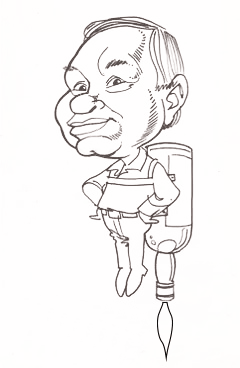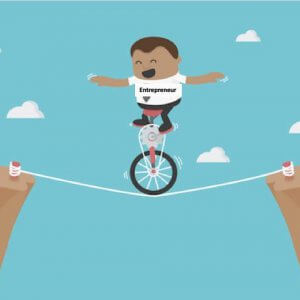

70% complete
🔒Your data is secure.
70% complete
🔒Your data is secure.

Mr. Carlos Ghosn, former Nissan Chairman, is charged with financial crimes, including causing Nissan to fail to report more than $80 million in planned future income on the company’s financial statements and directing Nissan money to be spent for his personal benefit.
Recently, he escaped to Lebanon from Japan, in a manner that would do James Bond proud! His reason: Lebanon may provide a more friendly legal environment. Justifying his action, he opined that the Japanese legal system,“ … is rigged … where guilt is presumed.’
About his escape, he justifies, ‘I have not fled justice—I have escaped injustice and political persecution,” The Japanese court had also put restrictions on his contact with his wife. When he reunited with her in Lebanon, Mrs. Ghosn described it as the “best gift of my life.”
This raises a few issues in my mind: 1. Does the accuse have the right to decide the country where he will stand trial? 2. Should an accuse take recourse to questionable methods to ensure justices is delivered? 3. Is Mr Ghosn the 1st business person to use company money for personal benefits? What do you think?

I was conducting a workshop at a 5 Star hotel in central Mumbai. On the last day, a few foreign participants, wanted to see typical Indian sights and sound. The hotel organised a trip for them to visit- the world’s largest open air laundry.
I was intrigued. I stay in the area but had not heard about this wonder of the world! I too joined the tour!
We were taken to ‘Dhobi Ghat’, in Mahalakshmi, Mumbai. The foreign participants were amazed at the sight! Dhobi Ghat when rechristened ‘the world’s largest open air laundry’ sounded so much better and it succeeded in creating anticipation! New age companies invest considerable time coining ‘titles’. it is a zero cost way of building customer interest.
Lesson for us: Coin titles for ‘properties’ owned by you, which will create anticipation and desire among your customers. But come good on the anticipation created by you!

It is raining discounts. Even luxury brands have joined the bandwagon to liquidate their non-moving and leftover stocks by offering ‘deep’ discounts. But if advertise that they are offering ‘deep’ discount, their image will take a beating.
To overcome this problem, they send out ‘gift vouchers’. When the customers present them, they get discount. If this strategy fails, then they too put up a sign board, outside their shop, announcing sale – but the board reads ‘Private Sale – By Invitation Only’. But anyone can avail it!
In this way, discounts are given, and their image is also protected! Take automobile. People are preferring ‘second hand’ car. This trend has percolated down to luxury car too. To clock sales they have to offer ‘second-hand’ car. But for oblivious reasons they cannot call them ‘second hand’ – their brand image will take a severe beating. Imagine a ‘second-hand’ BMW. To take the sting out of ‘second-hand’ they have smartly rechristening it as ‘pre-owned’ cars.
Lesson for us: What is said is not as important as how it it is said. Choice of words is very important in business.

Howard Schultz build Starbucks into a successful company. In 2000, he decided to hand over the responsibility to a successor and took on the role of the Chairman. But under the new leadership, Starbucks seemed to be running into a problem. This compelled Schultz returned to Starbucks as its CEO, in 2008.
The first thing he did was create an app that asked customers how they thought the coffeehouses could be improved. The company consolidated the top 10 responses and put them to a consumer vote. Then it implemented the top five fixes. The process engaged customers in the turnaround and helped restore revenue growth.
Lesson for us: 1. When customers have good experience, they will give repeat business. 2. To improve customer experiences involve them, by seeking their suggestions. 3. Implement the best suggestion/s. 4. Since the suggestions has come from them, they are likely to give it a thumb-up. 4 This is a near zero-cost way of getting suggestions for winning customers hearts.

Friends the old rule was – if it ain’t broke, don’t fix it. Therefore, successful companies did not execute disruptive strategies, fearing that it will lead to cannibalisation of their own brand. In due course, an agile competitor came along who eventually disrupted them.
An apt example is Nokia. More than seven years before Apple rolled out the iPhone, the Nokia team showed a phone with a colour touch screen set above a single button. The device was shown locating a restaurant, playing a racing game and ordering lipstick. In 1990s, Nokia secretly developed another alluring product: a tablet computer with a wireless connection and touch screen-all features today of the hot-selling Apple iPad. Fearing cannibalisation, these innovative products were not launched in the market. Result: Nokia was dethroned by Apple’s iPhone.
No wonder Steve Jobs said if we do not cannibalise our products, somebody else will.
The new rule: Be your own fiercest competitor. Disrupt your own business before competition does and emerge in a new and stronger avatar. Keep repeating at regular intervals.
70% complete
🔒Your data is secure.

Did you ever wonder why women are better dressed than men?
This is what I discovered: Women rarely shop alone. They are accompanied by a friend, relative or a reluctant companion.
The dress that is selected passes through many screening rounds:
• Visual screening: A dress that is hung on the stand is visually inspected.
• Visual Inspection – The dress that appeals to the eye, is pulled out of the rake and kept close to self to visualise how it look. 2nd opinion is sought from the companion for the dress to go through to the next round.
• Salesperson’s input: Her opinion is sought on size, colour, fit and more.
• Many not one: She enters the trial room armed with, not one, but a few shortlisted dresses. Each one is tried in the trial room and subject to close scrutiny by herself. Then she comes out and seeks opinion of her friend / companion. This cycle continues till all the short-listed dress have been tried.
• None meet expectations: They leave disappointed, without buying.
If selection process is so rigorous then why will women not be better dressed than men?

As a CEO of JK Helene Curtis, we depended on road transport to move our products across the country. We faced many challenges:
• Uncertainty, when the truck will reach
• Damage caused due to poor conditions of the truck & roads
• Human cost: Drivers were overworked; away from home for weeks and picked up bad habits. Result: accidents.
Rivigo, plotted the expectation map of stakeholders – fleet owner (sweat asset) driver (earn and be home every night) and the client (real time information)
It crafted an Algorithm to assign a driver to a truck. He covers approx. 250 kms in 5 hours. By then he arrives a pit stop. Here, he hands the truck to another driver who takes it forward. This driver is now assigned another truck going in the opposite direction – towards his home. By evening he reaches his home. Hands the truck to an assigned driver who takes it forward.
By adopting a relay system, a driver is home every night (almost), the asset is sweated, and the client has real time information!
New age companies, like Rivigo, powered by technology are dismantling old rules and putting new rules. If companies continue to operate their business using ‘old’ rules, then they run the risk of becoming irrelevant and gradually extinct. It is time to switch to ‘new rules’.

Zomato is making a promise – On time Or Free!
The promise is specific, time bound and measurable. It is, also, willing to self -penalise itself if it fails to come good on it.
Zomato, a new age company, is dismantling old rules of business and installing new rules of business.
Old Rule: Make a promise. It mattered little where customers experienced it or not.
New Rule: Make a promise which is specific, measurable and time bound. If the customers do not experience it, then self-penalise yourself. A caveat – customers will decide if they have experienced the promise and not the company.
Business lesson for us: Do not make tall claims. Only those claims which customers can experience.

Mr. Dennis Muilenburg, has been ousted as CEO of Boeing. Could it have been predicted?
Yes!
He made more mistakes post the 737 MAX debacle: He is an engineer. He relied on data and legal advice to formulate his response to the crisis. This approach increased friction with regulators, customers and airlines.
Result: Boeing severely damaged its most valuable asset: trust!
The cost is estimated to be $10billion in added cost and customer compensation –this figure will double. Plus, billions of dollars lost through erosion of its Market Cap..
Could things have been done differently?
1. CEO should have used ‘Business Story’ telling to communicate with stakeholders. This would have pacified them a wee bit more than throwing data and lawyers advice.
2. Integrity Issue: The CEO apologised to victim’s family on multiple occasions and acknowledged that Boeing made mistakes. But apology would not suffice, because it is an ‘Integrity’ issue – since it was not an inadvertent mistake. A price has to be paid – the CEO paid it with his job.
Can Boeing win back trust? Yes, it can!

Travis Kalanick relationship with Uber will end by December. His strategy for building Uber:
Buy Sales: Uber partnered with investors who pumped gigantic amount of money (Uber garnered $14 billion in equity & debt) to grow the business at the speed of sound. This involved ‘buying sales’.
Chase Valuation: At its peak Uber was valued at $68 billion. But after going public Uber share is down 30%. The reason: Wall Street does not like companies with red bottom line.
Win at any cost: Uber got embroiled in numerous scandals. It was rumoured to have a software to evade regulators. It has been discontinued.
Chauvinist workplace culture: It was rumoured to have workplace culture were male chauvinism flourished. Since Travis ouster, Uber is reshaping its culture.
What should be done instead? 1. Conceptualise a business model where the switching cost for customers is so high that they stay loyal to your business. 2. Build customer loyalty towards your product not your discount and promotion. 3. Chase profitable revenue growth. 4. Be ethical while doing business. 5. Have an empowering and enabling workplace culture.

How do you persuade people to your point of view?
By presenting a case that the ‘change’ does not involve change in their stance. In fact it is in sync with it.
Take Apple. It faced billions of dollars of loss in profits if President Trump imposed punitive tariff on products manufactured in China – iPhone is manufactured there.
Tim Cook spoke directly to President Trump & explained how tariffs would increase iPhone prices, seriously denting its capacity to compete with Samsung & a slew on Chinese phone brands.
President Trump saw reason & exempted a range of electronic products, including iPhones, saying it wanted to protect consumers ahead of the holiday season. Concomitantly, Apple, too, released a press release highlighting that number of jobs its business supports has increased 4x since 2011.
The debate culminated with President Trump trumpeting: He’s a great executive. Others go out and hire very expensive consultants. Tim Cook calls Donald Trump directly.

Why did iPhone deliver a crippling blow to Nokia? Because it changed the rules of the game. It was not merely a mobile communication device, but a ‘powerful’ computer which helped us listen to songs, view movies, get information on any & everything. In short it enriched our lives.
Although it was multiple times more expensive than Nokia, but people, stood in line, to acquire it again & again. Now, people cannot live without it. They feel incomplete without it.
Let us shift our discussion to automobiles. Its sales are falling. But sales of connected cars are bucking this trend. Hyundai Venue, MG Hector, and the upcoming Kia Seltos, have on board internet connections & digital cockpit instead of a conventional dashboard . In fact, people have paid an advance and are awaiting deliveries.
What does this indicate?
People preference & taste have migrated from a car (read: Nokia) to a ‘connected’ car (Read: iPhone on wheel). But automobile companies are still offering ‘conventional’ instead of connected’ cars!
Lesson for you: Are you tracking changes in your customers taste & preference? Are you adapting your offering to meet these changes ? If not, then a similar fate awaits you!

I respect Bharat Ratan Lata Mangeshkar. This is what I have learned from the way she has conducts herself:
She is a true role a role model for me.

Mahatma Gandhi is regarded as a world leader because of his thinking & actions:
His life was a lesson in leadership.

People act at variance to what they profess.
Take snacks. People aspire to have snacks with high nutritional value & support those brands which cause minimal impact on environment.
Right? Wrong!
McDonald’s USA President Chris Kempczinski says, most of its customers order based on taste, not nutritional value or environmental impact. Other considerations become merely a tiebreaker.
You may be tempted to disregard McDonald’s world view. Let me invite Dirk Van de Put, chief executive officer of Oreo maker Mondelez International Inc., to share his views: “There’s a difference between what people say and what they do. The facts of what people really buy are very different.”
Food companies are investing in healthier products, but they don’t always find fans. Truth be told: Healthier snacks make up small percentage but its sales are growing faster than those of indulgent snacks.
What about you? Do you believe in consuming health snack but end up consuming indulgent snacks?
In my case, the answer, unfortunately, is YES!

Renault has named Clotilde Delbos as its interim CEO. She is the 2nd women to lead an auto giant.
The truth is gradually emerging that women posses more ‘qualities’ that go into making a better business leader:
This must make you wonder – why are women not preforming better in business? Maybe, the business world mistakes confidence for competence, despite the fact that ‘leadership’ studies indicate that ‘over confidences & arrogance’ are inversely proportionate to desirable leadership qualities. What do you think?

Did you ever wonder what will replace smart phones? Wearable devices? Or wearable devices with fitness features?
Google seems to be betting on option 2. That could be the reason it is buying Fitbit? It also coincides with regulatory threat its internet search and advertising business are facing.
Who will be Google’s adversaries? Apple in devices and Amazon in advertising.
Is Google familiar with Fitbit business model? Fitbit collects user’s data, crunches it to recommend exercises and lifestyle changes. This is right up Google street! Yet another dream of Google may be realised – its languishing hardware business – Pixel smartphones, Chrome Book, Nest may get a fillip! Will Google Mission change – to organise the world’s information and make it universally accessible and useful? I feel, acquisition of Fitbit will it give another nuisance – make health accessible to all!
How can a traditional company innovate to get customers
How can a traditional company innovate to get customers, who are against it, to reach out for it again?
Coco Cola is not a preferred choice of millenniums. For them sugared drinks are a no-no. Coca Cola, accepted this reality & decided to focus on product innovation by launching zero, low-sugar and new flavours products.
If a market desired sugared version, it was sweetened entirely by Stevia – a natural sugar alternative. And supplemented it size innovation – launching smaller pack size and slimmer packs.
Lesson for us: 1. Learn to innovate. 2. Customers will not change their habits to suit us. We have to change our strategy to meet their expectations, new lifestyle & aspirations. 3. There is no limit to creativity. Limits resides in our mind.

Friends, I faced a problem when I took out a new toothpaste tube to use.
On the mouth of the tube was stuck an aluminium foil, to give assurance that it is genuine. But the challenge I faced was un-peeling it. The foil was so strongly stuck to the mouth of the tube that it left me frustrated. The pleasure of using it, evaporated.
This brings me to Amazon. It focusses on making shopping experience frictionless. This includes unpacking. It has introduced ‘frustration free packaging’. This ensures that customers do not feel frustrated while unpacking.
Customer loyalty is built not by doing a few ‘big’ things, but by relentlessly focusing upon incremental improvements. When this strategy is consistently pursued then Warren’s Buffet, Eighth Wonder – Law of Compounding kicks in. In the long run it ensures that your business will win customer’s loyalty. That is the goal of business.

Friends, recently we visited High Street Phoenix, at Lower Parel.
The Parking area was painted in bright orange & the pillar next to our parking area was emblazoned with alpha numerical code – 5C.
This took me back in time, when I had visited a Mall, in Dubai, along with my friend, his wife & their little princess. The parking lot resembled an ocean and vehicles seemed like fishes swimming everywhere. We found a parking slot.
I got out & felt overwhelmed. I was surrounded by cars. ‘How will you find this spot,’ I asked.
‘By triangulating it.’ he said.
‘How?’ I asked.
‘Did you notice that each level of parking is coloured differently; each pillar has a alpha numerical code & there are cartoon characters drawn everywhere?’ He asked.
‘How will it help find the car?’ I persisted.
‘Men are better at remembering alpha numerical, women colours & children characters,’ he explained.
‘In case we cannot remember where I parked, then I can recall the number/alphabet emblazoned on the pillar; my wife the colour & princess will shout out the character. Even with 2 clues we can ‘triangulate’ the floor, the area & the unique location where we have parked.’ He explained.
Consumer insight can be deployed to resolve business challenges!

(Source: Amazon Has Become America’s CEO Factory, WSJ)

In The Seven Habits of Highly Effective People by Stephen R. Covey introduced the concept of Three Circles of:
Effective people focus on what is under their control, while taking action to influence what they can & do not get worried, nor distracted nor concerned about what is not in their control.
Take a look at Virat Kohli. This is what he said before the Pakistan match – ‘We are not focusing on the opposition. It is about going into the Park & taking on whichever team is in front of us. If we play well, we can beat any team. If you do not play well teams are going to beat you. That is how simple the game of cricket is.’
Bottomline: 1. Virat Kohli is focused on what is under his control & not focused on what is outside his control. That is a good winning formula to follow. 2. Many of us fritter away our energy focusing on Circle of Influence (over which we have little control) & Circle of Concern (over which we have negligible control). Result – we sap our energy worrying about things over which we have no control. Refrain from falling victim to it.

Watching the World Cup cricket match yesterday made me reflect on the sea changes that has swept Indian cricket. Here is my take between of the changes that have taken place between ‘then & now’:
No wonder the word in England is that India is the team to beat to win the World Cup 2019.

Mr Azim Premji bids au revoir to Wipro as its Executive chairman. This is what I learnt from his life:
Before he set up Wipro, the technology behemoth, he was based in Mumbai. One of his company dealt in FMCG products like Santoor soap etc. Many a times he would call up the Sales Head of Mumbai, in the morning, & ask him if he could accompany him on a market visit. The answer from the Sales Head would always be a ‘yes’.
But Mr. Premji put a condition. He was not to be introduced to retailers as Mr. Premji. In fact, the sales people should just go about doing their job & Mr. Premji merely wanted to observe the proceedings.
Many shops he visited, the retailers did not realise that Mr. Premji was in their presence. A few who did recognise him, got a local photographer to record Mr. Premji presence at their outlet.
Lesson: No matter what position you reach, never lose touch with the marketThat is the value creation zone – where seller, buyers & your products meet & transaction happen.
Here is another inspiring story from his life:
One day, upon arrival at Bangalore airport, he noticed that his car had not come to pick him up. He waited for a while, but even then, when it did not turn up, he quietly hailed an auto-rickshaw & went to his home.
Lesson: Do not stand on protocols. Get on with the job at hand.

I have been an entrepreneur myself. Currently, I mentor start up. These are some of the challenges faced by entrepreneurs. Most of them are of their own making:
What do you think are the reasons why entrepreneurs face challenges?

The Lion King has many interesting Business lessons.
Take for instance, this advise of Mufasa – ‘While others search for what they can take, a true king searches for what he can give.’
But a corporate leader cannot always be a ‘giver’, because people will take undue advantage. She has to be an amalgamation of: * ‘giver’ – who gives * ‘taker’ – who takes * ‘balancer’ – who give as much as she gets
Depending upon who the person she is dealing with she has be either a giver, taker or a balancer!

Friends, a few of my students, who I taught at various B Schools, including at IIM, & were high achievers, confide in me that they are starting to feel / experience ‘burnout’ – a syndrome caused due to work stress which leaves them feeling tired, drained, powerless & in extreme causes hopeless.
Result: Their family & social life, health & well-being suffers.
My advice to them is simple:

Friends, I was gifted a watch bearing the signature of Mr. JRD Tata. I treasure it because every time I look at the dial it inspires me.
One day, when I took it out for wearing, I realised it had stopped working. I took it to a Titan Showroom, at CBD Belapur, in Navi Mumbai, for getting the battery replaced.
Vivek, the store manager, greeted us warmly, took custody of the watch & handed it to his team to replace the battery, while he engaged in small conversation. Sometime later, his colleague came forward & handed my watch to Vivek. He inspected it & handed over the watch to me.
‘Sir, here is your watch,’ he said, ‘We have also done its servicing.’
‘Thanks,’ I said. ‘How much should I pay?’
‘Nothing!’ he said.
‘Why?” I asked, perplexed.
‘This watch is rare & was given by my company to special people as a gift. Since you got it hence you must be special to my company.’ he explained.
I tried to persuade him to accept payment. But he refused.
Bottomline: Power is never given. It is taken. It should be exercised to delight company’s customers. 2. Everyone gets such opportunities, but few seize it.

Teen retailer, Forever 21 is facing challenging times.
It offered stylish apparel at low price : $5 tops & $20 dresses.
Why is this business model crumbling? Here are some reasons:
Forever 21 chose to be wilfully blind to it. Rapid expansion & wilful blindness to shifting trends have come together to push Forever 21 in a tight corner.

We Work, provider co-working space, is facing head winds.
Here’s why:
Weak Business Model, higher degree of risk & ‘superclass’ shares & debt fuelled growth are casting shadows on future of We Work.

Gillette is facing competition from multiple directions:
Online retailers know when their product is bought, who has bought it and what other products that are bought alongside. They mine this data and offer customised solutions to each of its shoppers! Gillette does not have access to such data. It does not know who is buying its product, when it purchased. In absence of data it offers mass shaving solutions!
Customers demand customised solutions not mass solutions! Therefore, online business are galloping ahead while traditional business struggle!

Did you notice that IPO valuations of ‘new age’ companies have fallen:
Here are my reasons:

I was travelling in an Uber. The drive was proving to be jerky – sudden acceleration followed by deceleration, for no apparent reason! I looked at the driver closely. He had ear plugs on and was singing – ‘Balam Pichari …’ from Yeh Jawani Hai Deewani. Then it struck me that he was driving to the beat of this song.
This made me go back to the time when I was consulting a fast food restaurant, located in Mumbai’s Central Business District. It faced a peculiar problem – large crowd of diners descended during lunch time. Seeing the waiting time many more potential diners went away. The owner wanted me to suggest a strategy for serving more customers during peak time. ‘During lunch time play a fast-paced Bollywood number. Hearing it, the diner will behave in sync with the beat of the song – fast paced – they will pay fast, eat fast, leave fast.’ My suggestion delivered results.
I had borrowed this idea from Retail stores. Sale attracts a large number of shoppers. To move them fast, a fast-paced music is played. On other days, when they want shoppers to hang out in store, slow numbers are played.

We went to a sari store which has a formidable reputation for stocking the widest range of wedding saris. They sold saris the ‘traditional’ way. Buyer (read: women) sit on the ‘gaddi’ while the salesperson showed (read: confused) them with choices. Two groups of women were already seated, in the store, but faced an intractable problem. Which one to select? I too was eager to know how they will resolve this issue. A lady pulled out her phone and made a WhatsApp video call. When the call was picked up, the caller came straight to the point – We are having difficulty in making up our mind. Tell us, is this colour suiting me? Look at these 2 options? This has a blouse piece with it!’ To my amazement, the conversation was happening as if the person, who miles away, was present in the store. The video call continued for a good 15 minutes. The sari salesperson was pulled into the call to demonstrate more saris! Finally, a choice was made. The other group of women too faced a similar problem. They made FaceTime call and pulled in family members, who were at home, to contribute to the selection process. Technology had permeated almost every aspect of our life. Including this last bastion!

Friends, my student from IIM Indore was doing Fellowship at Teach for India. He invited me to speak to his ‘students’ (Read: Class IV students). They came from economically stressed background but greeted me enthusiastically – with a broad smile. ‘He is my teacher,’ my student and gave the floor to me. ‘What have you learnt?’ I asked. There was a stunned silence. Then a young voice said, in Hindi, ‘To share’.
“Very good,’ I said, ‘What else?’
It seemed that a floodgate had opened, and a flurry of responses came:
It made me think – these qualities are required for being a good human being and a successful professional? As children we are aware of them. But when we grow up, we forget them and display the opposite behaviours, believing them to be the ‘guru mantra’ for success! How wrong adults can be?
Bottomline: Today is Children’s Day. Take a pledge to reawaken the child inside you!

H&M new collection of hats, necklace and boxer shorts have a red heart symbiozing the word ‘love’ accompanied with a tagline – I love GBV’ – the initials of the designer, Giambattista Valli. Unfortunately, it is a widely used acronym for ‘gender-based violence.’ H&M says the association is unintentional. But Women’s rights activities are demanding that the products be withdrawn.
If you were a H&M decision maker what would be your strategy to resolve this ‘inadvertent(?) blunder?

I booked an Uber. I had to go to Nariman Point – Mumbai’s famous business district. The Uber driver had switched on the ‘voice assistance’. Sitting in the Uber, I was preparing for the discussion I had to have over lunch. The ‘voice’ was disturbing me.
‘Please switch off the voice assistance.’ I told the driver, ‘I have to go to Nariman Point.’
‘Sir, I do not know any road, landmark or location in Mumbai.’ He said. ‘This is my 2nd day with Uber.’
Seeing my expression, he explained, ‘I have completed my graduation. It is difficult to get a job. So, I have to come to Mumbai to earn a living. With Uber I can.’
That got me thinking: He could have chosen to lament his luck – how bad it was; criticised the system – how unfair it was. Nothing positive would have come out of it. Instead he choose to act and got engaged with Uber and started earning a living. Technology has come in for all-round criticism for being a distraction and an addiction. But it is very useful when deployed correctly. It can help people earn a lively hood and live a life of dignity.
Learning for me:

Under Armour is under seize. Federal Authorities are investigating accounting practices whether it shifted sales from quarter to quarter to appear healthier.
What went wrong?
Several practices seemed to have taken root in the company – under the guise of being a scrappy underdog! Women felt discriminated when it came pay or promotion. Worse still there were instances of inappropriate behaviour which made them feel uncomfortable. For example, executives and employees, went with athletes or co-workers to strip clubs after some corporate and sporting events, and the company often paid for the visits of many attendees. Earlier this year, this practice has been discontinued.
Business Lessons for us: 1. What got us here will not take us there – Scrappy underdog – it is good strategy when you are the challenger, but a liability when you acquires size. 2. When women are not respected, then it does not augury well for the future of an organisation.

In Lower Parel, Mumbai, close to where I stay, a Share A Taxi Stand has been set-up, under a Flyover. Mumbaikars stand patiently in ‘Q’ and taxi drivers park the taxi while waiting for passengers.
This got me thinking: Take local train. Mumbaikars jump in a running local train to secure a seat. Why absence of patience at railway stations?
At Share a Taxi stand, service is assured. It may take time, but the taxis come. This gives confidence to Mumbaikars – it may take time, but my turn will come.’ The waiting area too is clean and covered. Take local train – there is no guarantee that ‘my turn will come’. If I wait for my turn to come, then I will keep on missing one local after the another and never reach home!
Bottomline: To get citizens to display good behaviour provide assured service level and a comfortable waiting area. Then sit back and witness magical transformation in behaviour!

Will Uber, or Uber inspired businesses make money? In the near future, it seems difficult.
Take Uber:
Who benefits from pursuing a strategy of buying sales and luring ‘employees’ with promise of business and incentives? Three major stakeholders – Customers through cheaper rides, drivers through business and incentives and Uber through ‘valuation’! Who is the loser? Not investors, because they fund this strategy, to ‘up’ the valuation and exit; but the last investor/s who is left holding the baby!

Ethical behaviour got a fillip.
McDonald fired its CEO Steve Easterbrook over a consensual relationship with an employee. ‘This was a mistake,’ Mr. Easterbrook said. ‘Given the values of the company. I agree with the board that it is time for me to move on.’
Did Mr Easterbrook commit a grave crime that merits such a severe punishment? McDonald’s censures employee relationship – even if it is consensual. Turning a Nelsons eye towards it is akin to wilfully violation of company’s value and policy. It indicates disdain for following and defending company’s value and policies. It makes the person unworthy of trust!
Lesson for us: Do not indulge in unethical behaviour. When discovered, you will have to pay a heavy price – loss of face, income and more. BTW – what do you think? Should he have been fired?
1. Disney goes glocal in Shanghai
2. Paper Boat: Riding on a wave of nostalgia
3. How The Viral Fever took the digital jungle by storm
4. Understanding the Donald Trump phenomena
5. Six business lessons from the Daiichi–Ranbaxy deal fiasco
6. Why Tesla has captured the world’s imagination
7. Why the iPhone SE may lose out in India
8. Amazon’s push in India and Alphabet vs Apple
9. Can Netflix win over India and other stories
10. Chasing profit may be self-defeating
11. Why you ought to convert customers into ‘employees’
12. The changing face of competition that can knock you down
13. How Zara, Sensodyne, others use behavioural science to unlock value
14. What successful companies do to win customer loyalty
16. 7 business stories from 2015 and how they will play out in 2016